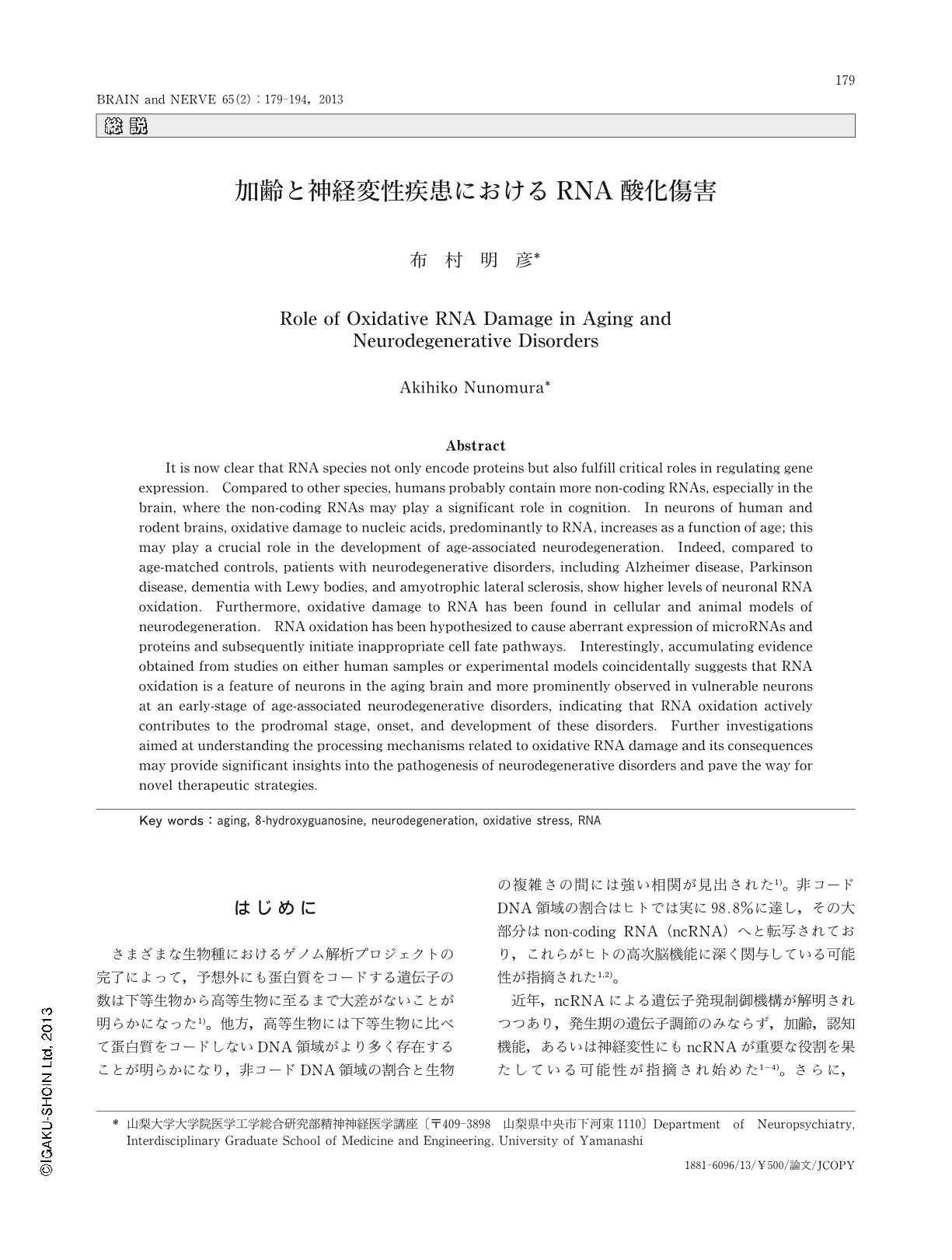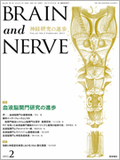Japanese
English
- 有料閲覧
- Abstract 文献概要
- 1ページ目 Look Inside
- 参考文献 Reference
はじめに
さまざまな生物種におけるゲノム解析プロジェクトの完了によって,予想外にも蛋白質をコードする遺伝子の数は下等生物から高等生物に至るまで大差がないことが明らかになった1)。他方,高等生物には下等生物に比べて蛋白質をコードしないDNA領域がより多く存在することが明らかになり,非コードDNA領域の割合と生物の複雑さの間には強い相関が見出された1)。非コードDNA領域の割合はヒトでは実に98.8%に達し,その大部分はnon-coding RNA(ncRNA)へと転写されており,これらがヒトの高次脳機能に深く関与している可能性が指摘された1,2)。
近年,ncRNAによる遺伝子発現制御機構が解明されつつあり,発生期の遺伝子調節のみならず,加齢,認知機能,あるいは神経変性にもncRNAが重要な役割を果たしている可能性が指摘され始めた1-4)。さらに,ncRNAの品質管理機構の破綻と疾病の関連性も注目されている5)。このような近年のRNAバイオロジーの急展開を受け,RNA酸化傷害と疾病の関連性が注目され始め6-9),神経系のRNA酸化傷害に関する知見も集積されつつある10-13)。
Abstract
It is now clear that RNA species not only encode proteins but also fulfill critical roles in regulating gene expression. Compared to other species, humans probably contain more non-coding RNAs, especially in the brain, where the non-coding RNAs may play a significant role in cognition. In neurons of human and rodent brains, oxidative damage to nucleic acids, predominantly to RNA, increases as a function of age; this may play a crucial role in the development of age-associated neurodegeneration. Indeed, compared to age-matched controls, patients with neurodegenerative disorders, including Alzheimer disease, Parkinson disease, dementia with Lewy bodies, and amyotrophic lateral sclerosis, show higher levels of neuronal RNA oxidation. Furthermore, oxidative damage to RNA has been found in cellular and animal models of neurodegeneration. RNA oxidation has been hypothesized to cause aberrant expression of microRNAs and proteins and subsequently initiate inappropriate cell fate pathways. Interestingly, accumulating evidence obtained from studies on either human samples or experimental models coincidentally suggests that RNA oxidation is a feature of neurons in the aging brain and more prominently observed in vulnerable neurons at an early-stage of age-associated neurodegenerative disorders, indicating that RNA oxidation actively contributes to the prodromal stage, onset, and development of these disorders. Further investigations aimed at understanding the processing mechanisms related to oxidative RNA damage and its consequences may provide significant insights into the pathogenesis of neurodegenerative disorders and pave the way for novel therapeutic strategies.

Copyright © 2013, Igaku-Shoin Ltd. All rights reserved.


